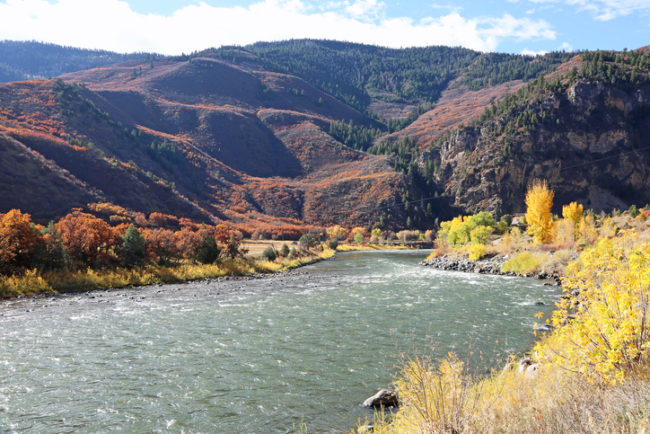A novel approach to finding a plaintiff meets a quick end. In September 2017, an environmental group filed a lawsuit in Colorado federal court. That lawsuit sought to force the State of Colorado to “protect and defend” the Colorado River ecosystem. While that action itself is not original in any sense, the named plaintiff was. The suit claimed it was filed on behalf of “The Colorado River Ecosystem.”
Undeterred by the fact that the Colorado River is not a person, the lawsuit claimed the river had legal rights flowing from its status as a “complex natural community.” The suit went on to allege that inanimate objects, such as ships and legal entities, such as corporations, have a legal “personality.” The suit theorized that if a corporation could be created in “fifteen minutes” and be allowed to pursue its legal rights, then the Colorado River, which has existed for “60 to 70 million years,” must certainly be entitled to legal rights. The lawsuit ultimately sought to alter how state regulators handled permits related to the river and to reduce consumers’ use of the water. Specifically, the lawsuit sought to limit the number of permits and “other regulatory approvals” the State of Colorado makes in order to protect the river’s ecosystem, including but not limited to the amount of water taken out of the watershed and the industrial activities permitted within it.
The lawsuit faced a number of legal challenges from the start. No U.S. court has recognized that a river possesses the ability to bring a lawsuit. To be able to successfully prosecute a case, the plaintiff must be able to establish that (1) they have suffered an invasion of their legally protected interest, (2) a causal connection between that harm and the actions of the defendant, and (3) that injury must be redressable by the court. The Colorado River could meet none of those requirements.
The State of Colorado responded to the lawsuit with a motion to dismiss and a letter to the environmental group claiming to represent the river. In that letter, the State of Colorado warned that, if the lawsuit was not voluntarily withdrawn, the State would “pursue all sanctions and remedies available.”
Shortly after the letter was sent, the attorney for the environmental group filed a notice of voluntary dismissal. The notice of voluntary dismissal was titled an “unopposed motion to dismiss amended complaint with prejudice.” In the dismissal, the attorney acknowledged that the case was a matter of “first impression” and that after “respectful conferral with opposing counsel per (state law) plaintiff respectfully moves this honorable court to dismiss the amended complaint.” Under the terms of the dismissal, the case cannot be brought again in federal court.
After the dismissal, Colorado Attorney General Cynthia Coffman issued a statement on the case. “I do not doubt the personal convictions of those groups and individuals who claimed to speak on behalf of the ecosystem,” Attorney General Coffman said. “However, the case itself unacceptably impugned the state’s sovereign authority to administer natural resources for public use, and was well beyond the jurisdiction of the judicial branch of government. After my office presented counsel with these and other realities, he wisely chose to withdraw the case. Colorado has always been a national leader in preserving our environment, and we will continue to protect and administer its natural resources as guaranteed by the constitution.”
This lawsuit represents another attempt by environmental groups to expand their tactics for use in pursuing their agendas. While this matter was resolved quickly, it is likely activists will continue to push the boundaries in the quest to legislate through the court system.

